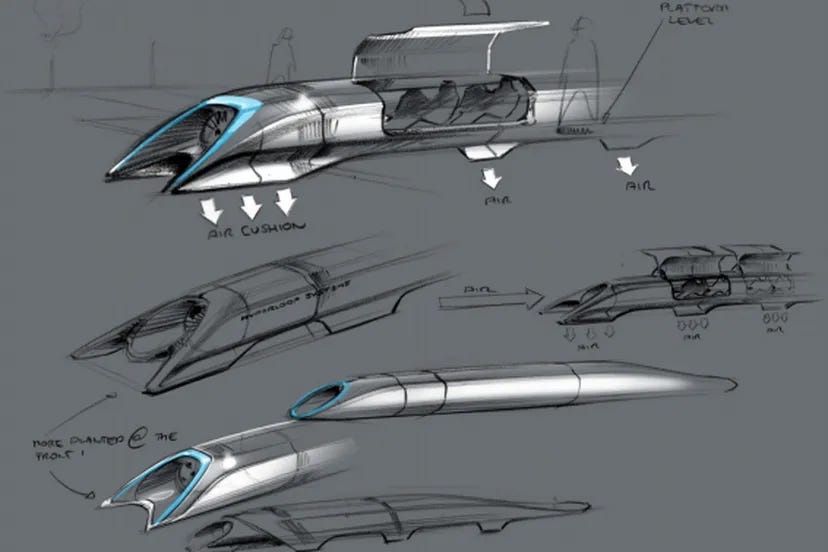Here's an idea, South Africa
On Monday, South African Elon Musk revealed his latest revolutionary idea – the Hyperloop, a new type of public transport that will run between Los Angeles and San Francisco. Musk, who moved to the US after school and founded the legendary companies PayPal, SpaceX and Tesla Motors, was disgusted by US government plans to build a high-speed train between the two cities for the exorbitant fee of $70 billion and thought he could come up with a faster, and cheaper, alternative. He revealed his plans for the Hyperloop in a blog post.
In a nutshell, the plan is to fire frictionless, magnetically levitated capsule vehicles through a near-vacuum tunnel. (If you're into this stuff, read the full document here.) The pods will travel at a maximum speed of 1220km/h, which will reduce the travel time for the 613.9 km between LA and San Francisco from the current 5 hours 34 minutes (as predicted by Google Maps) to what Musk hopes will be no more than 35 minutes. And this all for only 9% of the cost of the high-speed train (construction of which is scheduled for 2014).
Musk has his critics. Because most of the technology is very much in the development phase, there are some doubts whether his projections are realistic. He may also undershoot construction and maintenance costs (Musk believes a ticket will cost about $20 per ride.) But with some investment in research and development, there is no denying that this is an idea that could revolutionise medium-distance transport. The major problem may in fact be political: too many vested interests afraid of the disruptive power of new technology.
South Africa is currently debating its own transport future. One plan that has been mooted is to build a high-speed rail between Johannesburg and Durban. Incidentally, this is about the same distance – 568 km – than the distance for Musk's California Hyperloop, meaning that such technology can reduce the travel time between Durban and Joburg from five and a half hours to just 30 minutes. You could potentially work in Joburg and reside in Durban and spend less time "on the road" than those tackling the Ben Schoeman highway every day. But it's not really passengers that I'm thinking about: South Africa's main industrial area is situated, for historical reasons, in Gauteng, for from a port. A hyperloop for containers could significantly reduce transport costs, making South African manufacturing and exports competitive in world markets.
So here's an idea, South Africa: instead of building an expensive (as I've suggested in an earlier post) high-speed rail network, why not give Musk R100 billion to build his Hyperloop in South Africa. This will: a) provide a far more inexpensive and quicker mode of transport between Durban and Johannesburg than what a high-speed rail can promise; b) push South Africa to the technological frontier, creating a new industry that – if successful – would give South African firms a strong first-mover advantage in the global market, boosting exports of high-tech, knowledge-intensive goods (see my earlier post on Game Changers); and, c) inspire the next generation of South African physicists, engineers, innovators and entrepreneurs. One of them might just be the next Elon Musk – with an ever more daring revolutionary idea.
*Image source: Tesla, 2013, p. 13.


